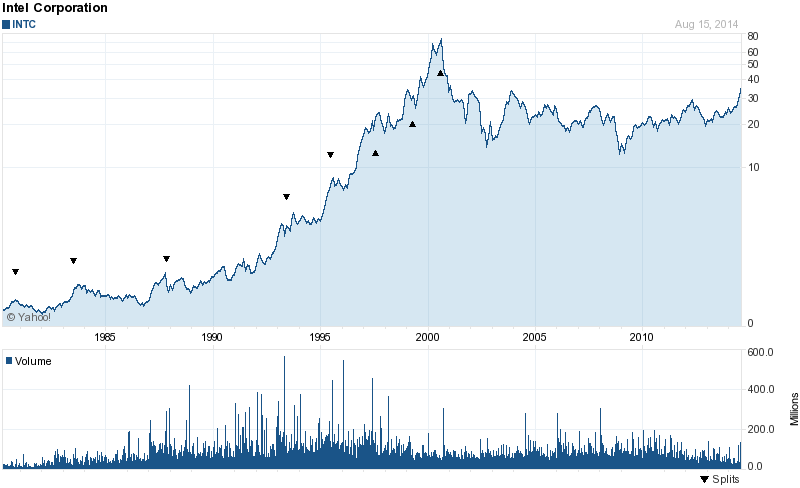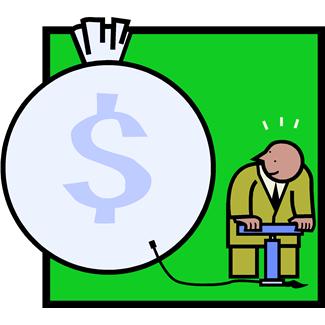The Tip Culture in Amateur Investing
 A reader wrote to me and said:
A reader wrote to me and said:
I’m sure a lot of people have already told you but I want to tell you anyway: Your blog is awesome! I came across The Aleph Blog a couple of months ago and I?m very impressed with your content. I particularly like that 4-part article on Using Investment Advice. I am in the financial industry myself and it makes me wish I came up with the kind of ideas that you have on your blog. Awesome stuff!
Keep up the good work,
Many thanks to the reader, and if you want to read that series, it is located here. ?But when I considered what he wrote to me, it made me think, “Why do we have to tell people how to think about investment advice?”
Then it hit me: because people are looking for easy tips to execute. ?After all, when I wrote the 4-piece series, I had?listening to Jim Cramer in mind. ?The ?tip culture? of inexperienced investors don?t want to learn the ideas behind investing, but just want someone to say, ?Buy this.?? There is little if any guarantee that the same pundit?will ever update his opinion.
We see this on the web, in magazines, newsletters, newspapers, etc. ?On rare occasion, I will print one out, and add it to my “delayed research stack” which means I will look at it in 1-3 months. ?I just did my quarterly clean-out a few days ago — anything I add to the stack now will wait until November.
But why read articles like, “Ten Undervalued Large Cap Stocks with Growth Potential,” “Nine Stocks to Buy and Hold Forever,” “Eight Stocks that are Taking Off, Don’t Miss Out,” “Seven Hidden Gens Among Small Caps,” “Six Stocks for Income and Growth,” “Five Energy Stocks that are Poised to Surge,” Four Titanic Stocks that Every Investor Should Own,” “Three Turnaround Stocks with Potential for Large Capital Gains,” “Two Stocks with Breakthrough Technologies,” and “The One Stock that You Should Own for the Next Decade.”
Now, I made those titles up, though the last one was based off a Smart Money article on Intel in late 1999 which came very close to top-ticking ?the market. ?As you can see, Intel still hasn’t made it back to the tech bubble peak.
As I Googled phrases like, “Ten Best Stocks,” it was fascinating to see the range of pitches employed:
- Appeals to Buffett (that never gets old)
- Best stocks for this year
- Favorite stocks of an author, manager or publication
- With high dividends
- With a low price
- In emerging markets
- That won’t lose money
- That our patented investment screener spat out
- For the rest of your life
- Etc.
I know that I could get a lot more readers with list articles that tout stocks. ?I don’t do it because most of the articles that you read like that are bogus. ?[I also don’t want the inevitable scad of complaints that come with the territory.) ?So why do such articles?draw readers?
People would rather have false certainty than live in the reality that choosing good investments is difficult. ?Even very good investors hit rough patches where they do not outperform. ?Also, people aren’t comfortable with uncertain horizons for realizing value in investments — article tout holding forever, ten years, one year, but rarely 3-5 years or a market cycle.
The truth is, you can’t tell when a stock will perform, but when it does perform, the results will be lumpy. ?The performance of a stock is rarely smooth. ?During times when the success or failure of a stock idea is realized, the moves are often violent.
Now remember, those who write such articles are looking for media revenue — such articles are sensational, and pander to the desire for easy money. ?But where are the articles telling you to sell ten stocks now? ?(Yes, I know there are some, but they are not so common.) ?Or, where are follow up pieces indicating how well prior picks have done, and whether one should sell, hold, or buy more now?
My main point is this: good amateur investing is like having a part-time job. ?A part-time job, well, takes time. ?Weigh that against other priorities in your life — family, friends, church, public service, fun, etc. ?You may not want a part-time job, and so you can index your investments, or outsource them to a trusted advisor, who hopefully digs up his own ideas, and does not have a consensus, index-like portfolio (If he does, why not index?)
So, avoid tips if you can. ?If you can’t, develop a research discipline, or set them aside like I do, and revisit them when the original reason for buying it is forgotten, and you must evaluate for yourself now. ?The investment that you do not understand why you bought it, you will never know when it is the right time to sell it.
Either learn to evaluate investments on your own, or index your investments, or find a good investment advisor. ?But don’t think that you will do well off of tips.


